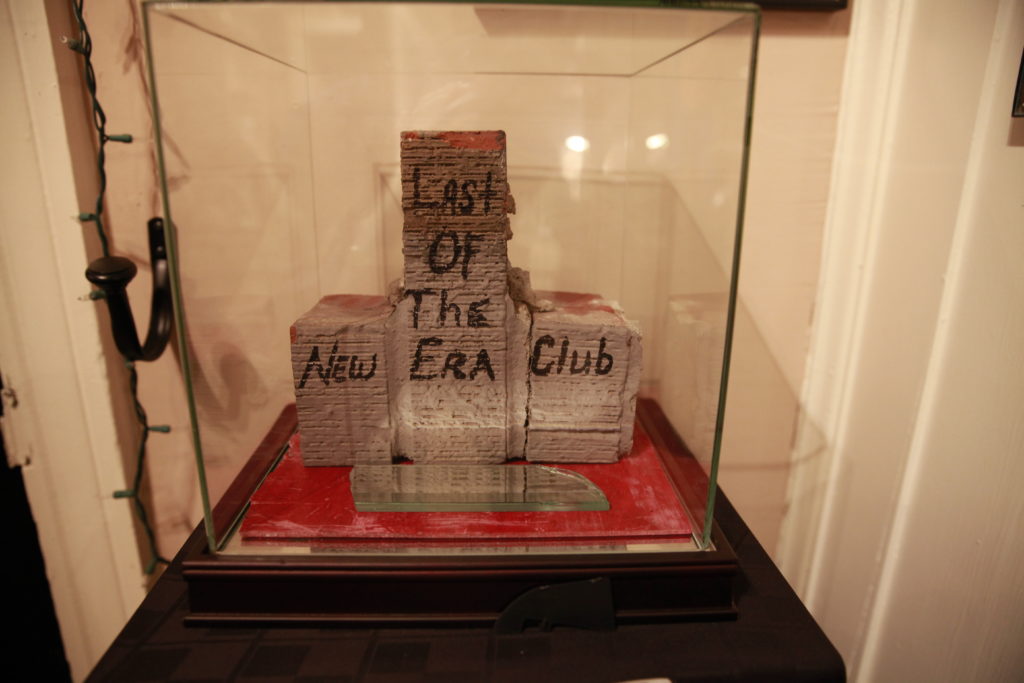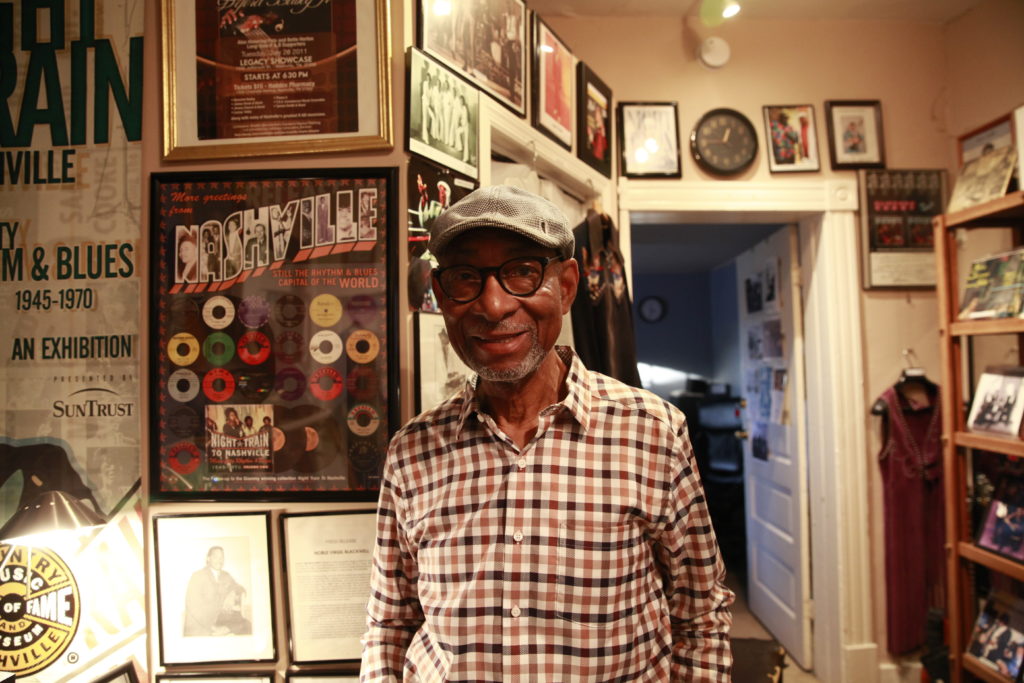
Let’s travel back in time — all the way to the fall of 1963.
Singer Etta James, just 25 years old, takes the microphone at the New Era Club, with a crack band cranking out the rhythms behind her. The resulting album, Etta James Rocks the House, is probably the most enduring musical artifact of this storied venue. Recorded live over two September nights in 1963, it is widely considered a classic and one of James’ strongest showings.
And for good reason: the atmosphere on this recording is absolutely electric. It feels like you’re right there, with James in a sparkling white dress, wailing away on the small wooden stage.
But all that didn’t keep the city from demolishing the New Era Club to make way for I-40 less than a decade later. The club did relocate to 12th and Charlotte, where it was later renamed the Modern Era, and reopened for a time in the early 2000s.
A thriving entertainment district
“It was a very busy area,” Nashville native Ron Wynn says of North Nashville. “And the New Era was like the center of that. And that’s one of the reasons why Chess decided to record Etta James there, in ’63, was because the New Era had such a national reputation.”
Wynn always knew about the New Era Club. But it wasn’t until about 20 years ago that he really dug into its legacy.
“One of the things that I guess people who weren’t around in that time don’t really understand,” he says, “is that Nashville was a hub for Black music activity.”

Ron Wynn stands in front of 1114 Charlotte, the final location of the New Era Club
The New Era first opened in 1939, at Fourth and Charlotte. As that area gentrified, the club moved to its penultimate location, 11th and Charlotte — the house that Etta James rocked. (That is now a parking lot that sits just off the highway.)
Around that time, this whole area became a regular stop for touring acts, not to mention the local talent gigging nearly every night.
As traffic zips past us, Ron and I look around for any indication that the New Era Club was ever here. There is no marker or plaque, and otherwise it’s just an ordinary office building, with a drain pipe and a small side door.
“This is kind of typical of many cities, in terms of the neglect of the history that’s in their backyard,” Wynn says.
But not everyone takes that history for granted.
 Steve Haruch, WPLN
Steve Haruch, WPLN Lorenzo Washington, at the Jefferson Street Sound Museum
‘The mecca of our Black community’
Lorenzo Washington is the founder of the Jefferson Street Sound Museum and was a regular at the New Era back in its heyday.
“The New Era Club was packed every Thursday, Friday and Saturday night,” Washington says. “It was so much fun being in that building.”
There were beer taverns, grocery stores and boarding houses nearby, as well as a popular restaurant, owned by guitarist Johnny Jones, that was known for serving up heaping plates of food. Jones was a big enough talent that he helped Jimi Hendrix refine his technique.
“This was the mecca of our Black community: Charlotte, Buchanan, Jefferson Street,” Washington says. “You know, we as Black folk over here at that time was pretty much self-contained because we couldn’t go to the white hotels and in the white establishments around us.”
And at the heart of the mecca, was the New Era Club. It wasn’t a particularly big room. Washington estimates it held about 150 people. Even so, he says, “It was so much excitement in that club,” and, of course, Etta James played there as well.
Speaking of Etta James Rocks the House, Washington says, “Well, I wasn’t there that night, but one of my good friends, James Watson … he played bass on that album.” As the story goes, Watson thought he was just there jamming with Etta James.
“Now this is what he said,” Washington continues. “They didn’t get paid for it either, because they didn’t sign contracts saying that they were recording an album!”
I have not been able to confirm this story with James Watson, aka Wat, who is still alive. But it wouldn’t be the first time a musician didn’t get paid for their work.
End of the Era

Jackie Shane, Any Other Way album art
One regular performer at the New Era was Jackie Shane. She was a singer with a powerful voice and commanding stage presence. She was also openly trans in the Jim Crow South, and she was well aware of how that endangered her life here.
“She was afraid to death that she was going to be hurt or killed here in Nashville,” Washington recalls. “She would open up for Jimi Hendrix … and she has told me a number of times that Jimi loved her playing, because Jackie played the drums, and she could play drums standing up and sing at the same time.”
Shane left Nashville, and after a successful musical career in Canada she spent several years out from the public eye. Shane released Any Other Way, a collection of her singles and a live recording, in 2017. After returning home to care for her mother, Jackie Shane passed away in 2019. It was Washington who found her body.
Today, there’s nothing left of the New Era Club — well, almost nothing.
“When they were tearing that building down,” Washington remembers, “I saw the bulldozers knocking it down and I drove up and went in there and asked the guy, ‘Could I take some bricks, piece of the mirror, piece of the floor, just to have it?’ ”
Those last few artifacts of the New Era sit in a glass case at Washington’s curated museum.


